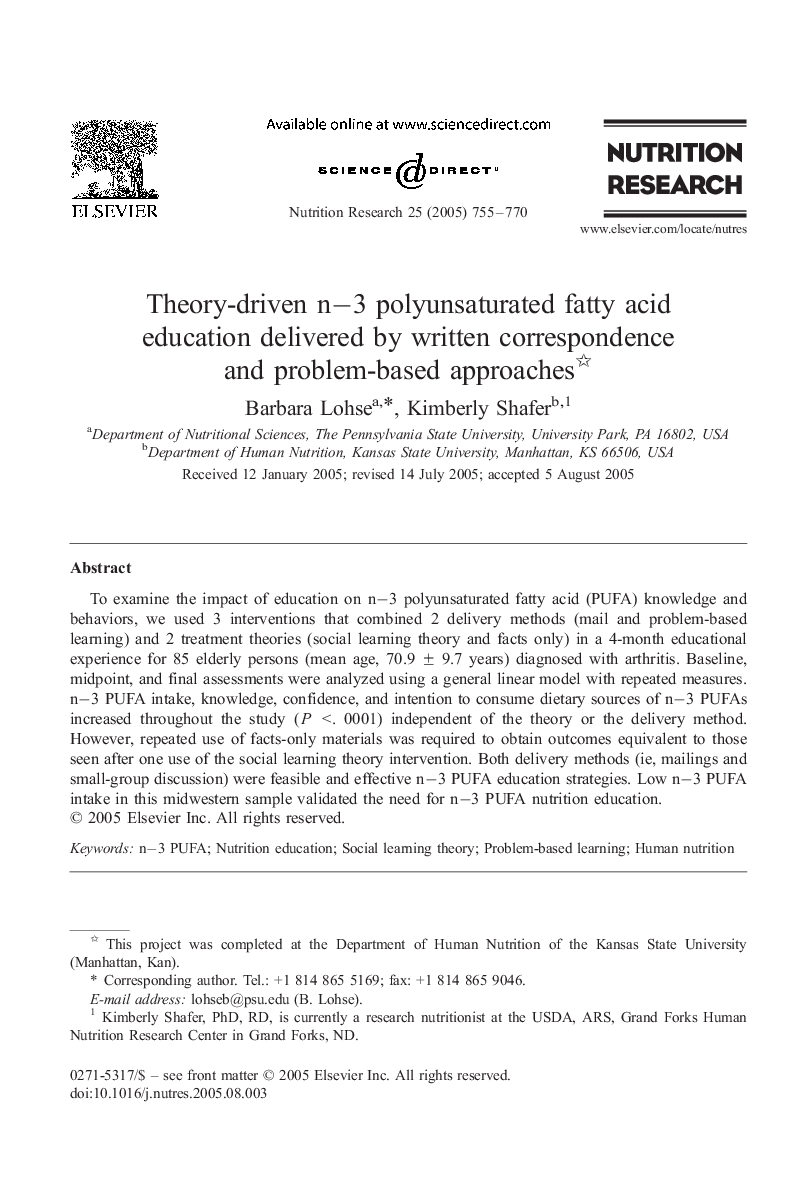| Article ID | Journal | Published Year | Pages | File Type |
|---|---|---|---|---|
| 9118987 | Nutrition Research | 2005 | 16 Pages |
Abstract
To examine the impact of education on nâ3 polyunsaturated fatty acid (PUFA) knowledge and behaviors, we used 3 interventions that combined 2 delivery methods (mail and problem-based learning) and 2 treatment theories (social learning theory and facts only) in a 4-month educational experience for 85 elderly persons (mean age, 70.9 ± 9.7 years) diagnosed with arthritis. Baseline, midpoint, and final assessments were analyzed using a general linear model with repeated measures. nâ3 PUFA intake, knowledge, confidence, and intention to consume dietary sources of nâ3 PUFAs increased throughout the study (P <. 0001) independent of the theory or the delivery method. However, repeated use of facts-only materials was required to obtain outcomes equivalent to those seen after one use of the social learning theory intervention. Both delivery methods (ie, mailings and small-group discussion) were feasible and effective nâ3 PUFA education strategies. Low nâ3 PUFA intake in this midwestern sample validated the need for nâ3 PUFA nutrition education.
Related Topics
Life Sciences
Biochemistry, Genetics and Molecular Biology
Endocrinology
Authors
Barbara Lohse, Kimberly Shafer,
